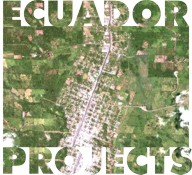Project Overview
Funding Agency: National Institutes of Health (NIH)
Begin Date: August 15, 2007
End Date: July 31, 2010
This is the first of the CPC Ecuador Projects to venture outside the Amazon Basin. The focus of this study is in three areas of the Ecuadorian Andes, in the provinces of Pichincha, Chimborazo, Cayar and Loja.
Rural communities throughout the developing world are being transformed by out-migration to urban, frontier, and international destinations. Nevertheless, key questions about this out-migration have not been addressed adequately by current approaches, including the role of the larger context in out-migration. In particular, existing studies have not addressed the potentially critical linkages between migration and the rural environment, specifically the effects of environmental factors on out-migration from rural areas. Growing out of earlier research on deforestation by migrant settlers in the Ecuadorian Amazon, we ask: Why are people leaving rural areas of origin; what are the roles of environmental degradation, rural poverty, farm assets, and other factors? How are out-migrants selected by type of destination? And how do the factors determining migration differ according to the type of destination? This project will design novel data collection procedures to be implemented as part of household and community-level surveys, and will link survey data to remotely sensed data and spatially derived variables, including geographic accessibility. A key innovation of the study will be to develop and test measures of environmental quality from satellite imagery and other spatial datasets and to compare them with survey data from households on environmental conditions. To estimate the effects of environmental and other factors on rural out-migration, we will use a multilevel model of migration that takes into account contextual, individual and household factors, including environmental factors at household, community and larger scales. These results will help generate a broadly-applicable framework useful in future empirical research on the linkages between migration and the rural environment. Finally, a key issue in migration research is the selectivity of migrants and the inability to observe or collect data in origin-area-based surveys on whole departed households, since there is no one left behind in the household to provide reliable information. Such migrating households may differ in important ways from those who leave as individuals with the rest of the household remaining behind, and the factors affecting out-migration may differ. Therefore, we will also collect data on whole households that recently left the community from close neighbors/relatives to compare their characteristics and the determinants of their out-migration with those of individual migrants as well as non-migrant and migrant-sending households. This will provide the basis for a methodological evaluation of the origin-area approach to migration.
